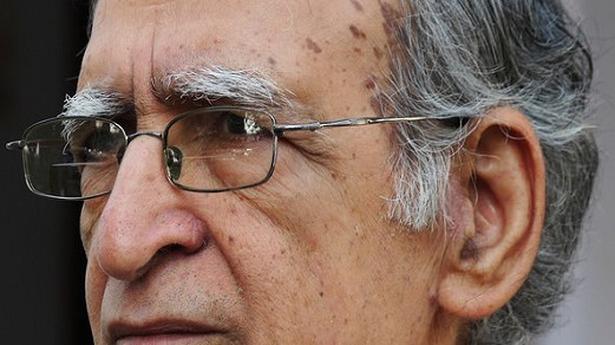
Criticism of government is not anti-national: Puniyani
The Hindu
Academic calls for war against communalism, poverty and unemployment
Academician and activist Ram Puniyani has called for mounting a multilayered struggle against communalism, poverty and unemployment that affected large sections in the country. He also stressed on the need for campaigning for the rights of workers, farmers, small traders, marginalised communities and women’s security.
Prof. Puniyani, a former faculty at Indian Institute of Technology (IIT) Mumbai and president of the civil society organisation Centre for the Study of Society and Secularism (CSSS), was delivering the ‘Distinguished Lecture’ on ‘Challenges to Indian Democracy’. The programme was organised by Vakkom Moulavi Memorial and Research Centre (VMMRC) in association with CSSS in connection with India’s 75 th Year of Independence.
Lamenting actions that have been purportedly undermining democratic rights, the academic lashed out at labelling attempts to critique the government as anti-national. While such practices are intended for course correction, viewing them otherwise is an indicator of a democracy at decline.
Prof Puniyani said the country’s first Prime Minister Jawaharlal Nehru had foreseen the danger posed by mixing religion with politics. “The use of religion has increased to a dangerous level in India wherein issues that relate to religious identity touch the emotional chord. As such, emotive issues based on religion pose a major challenge to democracy. Politics today comes under the garb of religion. Consequently, democracy is stifled by such trends from multiple sources,” he pointed out.
He opined that communal politics is based on a distorted version of history. Spreading misconceptions of history has become part of social common sense and grounds on which hatred can be constructed. He called for grassroots-level campaigns to propagate the values of pluralism and diversity.
CSSS director Irfan Engineer chaired the session. Indian Council of Social Science Research senior fellow K.M. Seethi also spoke.













